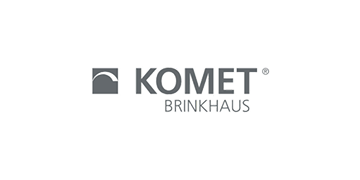| Theme | Tool- and Mold-Making, Industry 4.0, Forming technology |
|---|---|
| Project title | Intelligent forging tools for the reduction of defects in bulk forming (IWZ) |
| Project duration | 01.05.2011 – 30.04.2013 |
| Download | |
| Press release |
In this research project a new system for the monitoring of forging processes is developed. With this system, defective parts are to be detected during the forging process and discharged. Unnecessary process steps of the defective parts thus can be eliminated in the future. One goal of the project is to detect defective parts due to a lack of die filling. To determine whether the material completely fills the engraving, electrically isolated electrodes are applied in the die.
Publications about the project
Within the research project "Intelligente Schmiedewerkzeuge zur Fehlerreduktion in der Massivumformung" (AiF 17009 N) intelligent forging tools and a specific software were developed which allow an identification of forged errors and a mold filling monitoring. This article presents the underlying concept and the developed software.
forging, process monitoring
The early detection of defects in forged parts offers economical advantages due to the possibility of sorting them out of the process chain. The detection of defects during the forging process is not state of the art. Due to the rough conditions in forging (e. g. high temperatures and forces) the integration of sensors monitoring the forging process is hardly viable. Usually defects of forged parts – which are not obvious and can therefore hardly be identified by the press user – are detected by measurements after cooling or later by the customer. In both variants costs occur. Within the presented research project an in-situ forging process monitoring is developed which works without sensors and shows results directly after forging.
metal, steel, metal processing, forging, quality
The early detection of defects in forging processes offers economic benefits. For example, workpieces that are forged incorrectly can be discharged from the process chain immediately and thus do not cause additional process costs, i. e. in a subsequent heat treatment. The development of a novel process monitoring using electrical current allows the identification of forging defects and underfillings.
forging, process monitoring
The early detection of defects in forged parts offers economical advantages due to the possibility of sorting them out of the process chain. The aim of the presented research project is the development of a forging process monitoring without sensors. In the process electric current is flowing through the forged part. The quality of the forged parts is measured by the electrical signal. Typical defects of forgings like underfilling and wrong temperature of the billet show characteristic signals and therefore can be detected. These parts are sorted out of the process chain. The user of the forging machine is able to adjust the forging process immediately.
forging, process monitoring
The implementation of process monitoring technologies in manufacturing processes allows significant cost and time savings. An online process monitoring of die cavity filling in warm forging processes could not be realized until now. Important process parameters for example billet volume, billet temperature or lubrication could only be observed after forging. This paper describes the implementation of an online process monitoring system based on electricity.
forging, process monitoring














